Business in the Middle East
Module (Master, Doctorate) “Foreign Trade and Business in the Middle East” (24 ECTS,  ,
E-Learning)
,
E-Learning)
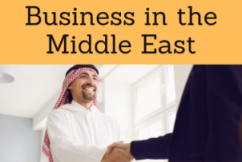
Nine subjects compose the Module “Foreign Trade and Business in the Middle East” (Bahrain, Kuwait, Oman, Qatar, Saudi Arabia, the Emirates, Jordan, Lebanon, Syria, and Yemen, Gulf Cooperation Council...) taught by EENI Global Business School:
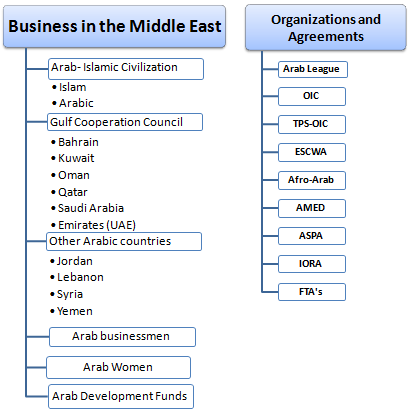
- The Arab Economic Area of the Islamic Civilization
- The Cooperation Council for the Arab States of the Gulf (GCC)
- Business in the member countries of the GCC
- Business in other Arab Countries
- Arab Businesspeople. Arab Women and Business
- Regional Economic Institutions and Trade Agreements (FTA) related to the Arab Countries
- Arab Development Funds
- Other Economic Institutions in the region
- Business Plan for the Middle East

- Credits: 24

- Duration: 5 months It is recommended to dedicate about twelve hours of study per week following a flexible schedule. It is possible to reduce the duration dedicating more hours a week
- Download the syllabus (PDF)
Languages: 
- Also available in For improving the international communication skills, the student has free access to the learning materials in these languages (free multilingual training).
 Oriente Medio
Oriente Medio  Moyen-Orient
Moyen-Orient  Médio Oriente
Médio Oriente
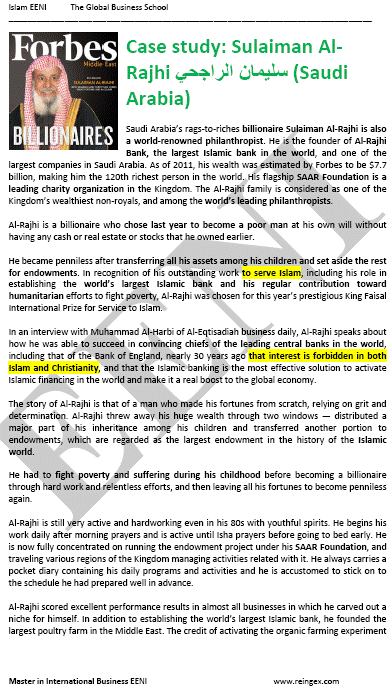
The main objective of the Module is to provide an overview of the economy of the Middle East and the business opportunities.
- To learn to do business in the Arab countries (Bahrain, Kuwait, Oman, Qatar, Saudi Arabia, the Emirates, Jordan, Lebanon, Syria, and Yemen) and the business opportunities in the Middle East
- To understand how to negotiate in the Arab markets
- To understand the various regional trade agreements (Cooperation Council for the Arab States of the Gulf, GAFTA...) and institutions and their relevance to both regional and world trade (Organization of Islamic Cooperation, League of Arab States, Economic and Social Commission for Western Asia)
- To know the importance of the Arab Development Funds
- To analyze foreign trade and foreign direct investment (FDI) flows in the Middle East
- To examine the profile of Arab Businesspeople
- To develop a business plan for the Middle East
Diploma intended for all those wanting to specialize in the Middle East markets.
EENI delivers to HRH Prince Alwaleed bin Talal a Master Honoris Causa
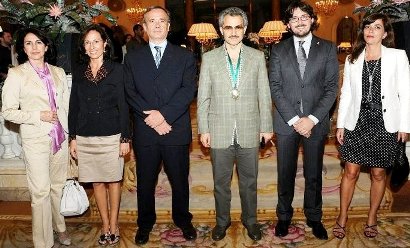
This Module belongs to the following Higher Education Programs taught by EENI:
Doctorate: Islamic Business, World Trade.
Master: International Business.

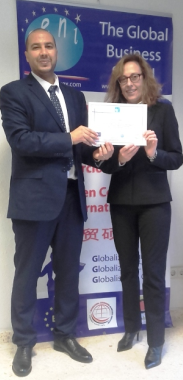
Sample: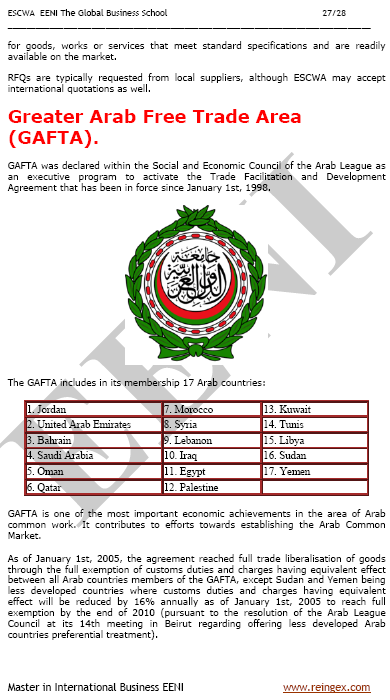

- Introduction to the Arab Economic Area (PDF) of the Islamic Civilization
- Introduction to Islam
- Eastern Catholic Churches (Maronites, Chaldeans)
- Gulf Cooperation Council (GCC)
- Greater Arab Free-Trade Area (GAFTA)
- Business in the member countries of the GCC
- Business in other Arab Countries
- Arab Businesspeople
- HRH Prince Alwaleed bin Talal
- Nasser Al Kharafi
- Jawad Ahmed Bukhamseen
- Mohamed Al Jaber
- Mohammed Al-Amoudi
- Mohammed Al-Barwani
- Sulaiman Al-Rajhi
- Majid Al Futtaim
- Abdul Aziz Ghurair
- Yusuf Bin Ahmed Kanoo
- Nadhmi Shakir Auchi
Arab Women and Business - Regional Economic Organizations related to the Arab Countries
- Arab League
- OIC
- Economic Commission for Western Asia (ESCWA)
- Islamic Development Bank
- Afro-Arab Cooperation
- Asia-Middle East Dialogue
- Summit of South American-Arab Countries
- Indian-Ocean Rim Association
- Access to the China-Pakistan Corridor
- Free Trade Agreements related to the Middle East Markets
- Trade Preferential System (TPS-OIC)
- The Agreements of the GCC with India, Australia, EFTA, and the EU
- The U.S. has Trade Agreements with Bahrain, Oman, and Jordan
- Arab Mediterranean Agreement
- Jordan has Trade Agreements with the EU, US, EFTA, Canada, and Singapore; is a member of the Agadir Agreement
- Euro-Mediterranean Partnership
- Lebanon has a Trade Agreement with the EFTA and the EU
- Arab Development Funds (Download Syllabus PDF)
- Business Plan for the Middle East

The Module includes the Market Access tool:
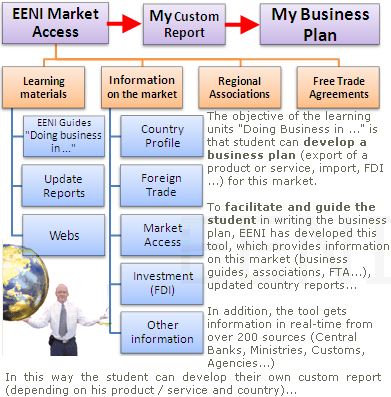

IMPORTANT NOTE: The region is undergoing deep changes, many countries are rapidly evolving, some towards more open economies, others to civil war as Syria.
Area of Knowledge: Islam - Doing Business.
EENI Middle East Students:
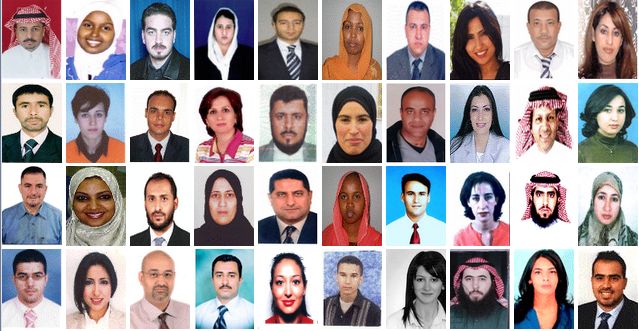
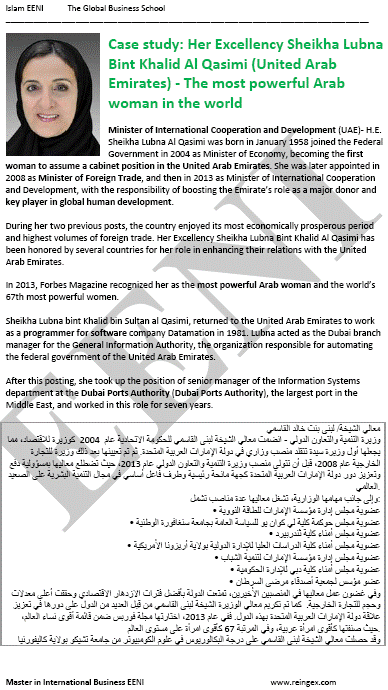
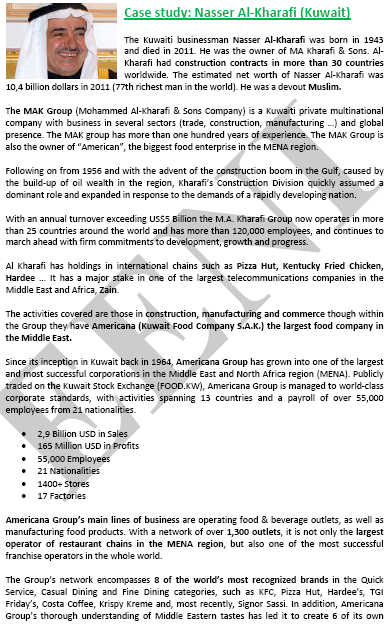
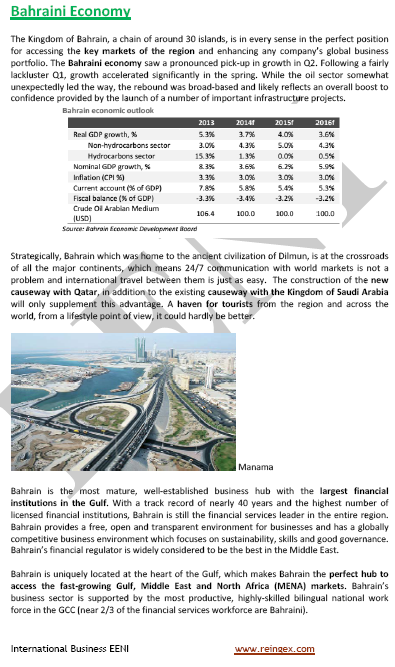
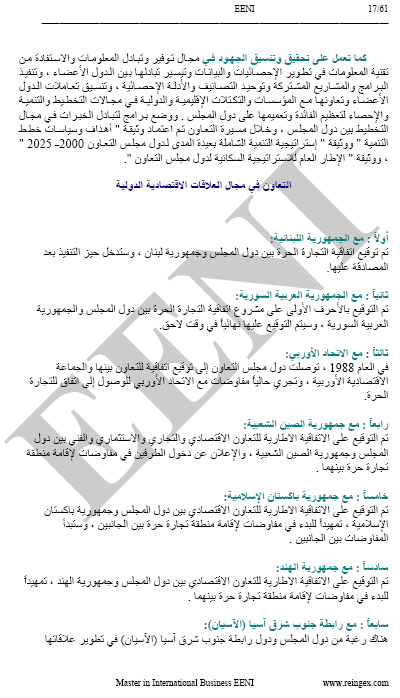
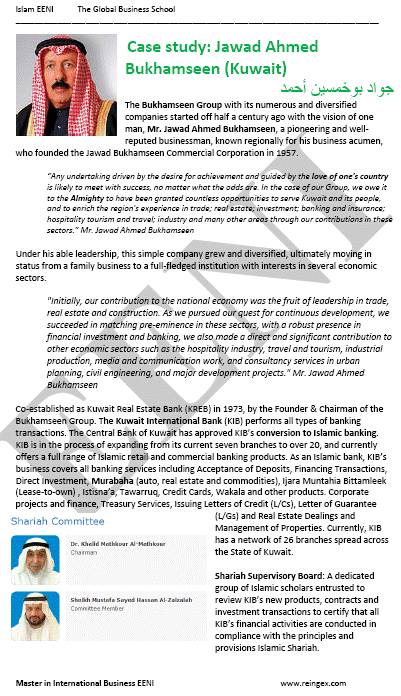
(c) EENI Global Business School (1995-2024)
We do not use cookies
Top of this page


